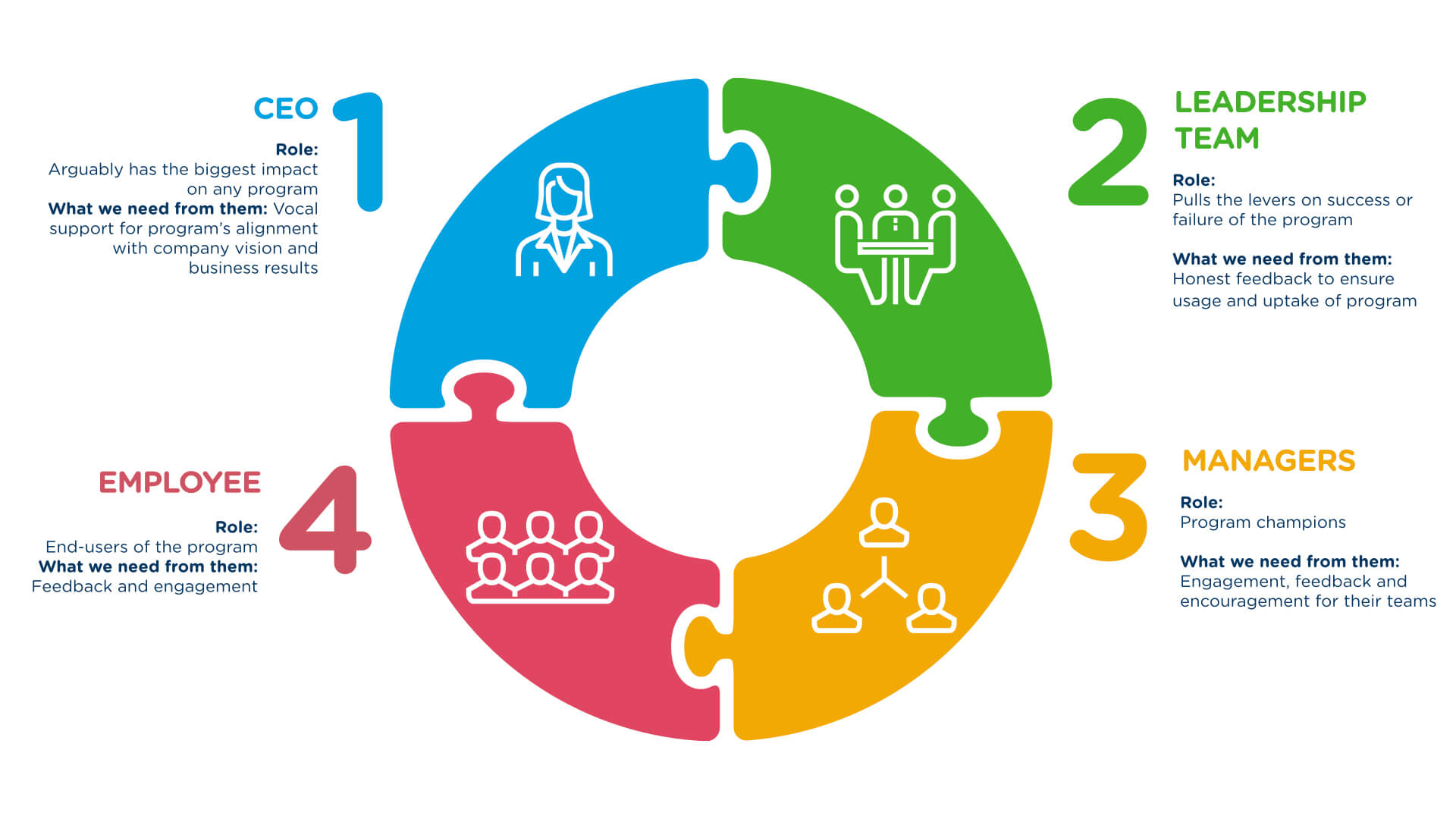measuring engagement
Elevating Business Success Through Employee Engagement

Elevating Business Success Through Employee Engagement
Employee engagement is not merely an HR buzzword; it is a transformative force that can significantly impact the success and sustainability of businesses. By fostering a culture of engagement, companies empower their workforce, enhance productivity, and create an environment conducive to innovation and growth.
Understanding the Essence of Employee Engagement
Employee engagement goes beyond job satisfaction. It is a holistic approach that encompasses an employee’s emotional commitment, passion for their work, and alignment with the company’s values and goals. Engaged employees are not just content; they are motivated, dedicated, and actively contribute to the success of the organization.
Building a Positive Workplace Culture
A positive workplace culture is the bedrock of employee engagement. Companies need to cultivate an environment where employees feel valued, respected, and included. Open communication, transparency, and a sense of belonging contribute to a positive culture that, in turn, fuels engagement.
Effective Communication: A Cornerstone of Engagement
Communication is a two-way street, and fostering engagement requires transparent and effective communication channels. From sharing company goals to providing regular feedback and recognition, communication builds trust and keeps employees informed and motivated.
Recognition and Appreciation Fueling Engagement
Employees crave recognition for their contributions. Recognizing and appreciating achievements, big or small, instills a sense of pride and motivates employees to continue putting in their best effort. Acknowledgment is a powerful tool in creating a culture of appreciation and engagement.
Empowering Employees Through Professional Development
Investing in professional development opportunities demonstrates a commitment to employees’ growth. Whether through training programs, mentorship initiatives, or educational support, empowering employees with tools for career advancement fosters a sense of loyalty and engagement.
Flexible Work Arrangements for Work-Life Balance
Work-life balance is a significant factor in employee satisfaction and engagement. Offering flexible work arrangements, such as remote work options or flexible hours, shows an understanding of employees’ diverse needs and contributes to a healthier work-life equilibrium.
Creating Opportunities for Employee Input and Feedback
Engaged employees want to feel that their opinions matter. Creating channels for employee input and feedback not only provides valuable insights but also makes employees feel valued and involved in the decision-making process. This participatory approach fosters a sense of ownership and commitment.
Social Connectivity and Team Building
A sense of belonging is crucial for engagement, especially in larger organizations. Social activities and team-building exercises create opportunities for employees to connect on a personal level, fostering a supportive and collaborative work environment.
Leadership’s Role in Nurturing Engagement
Leadership plays a pivotal role in shaping the engagement landscape. Leaders should exemplify the values of the organization, communicate a compelling vision, and actively support and recognize their teams. When leadership prioritizes and champions engagement, it permeates throughout the entire organization.
Measuring and Adapting Engagement Strategies
Regularly measuring employee engagement allows businesses to understand the effectiveness of their strategies. Employee surveys, feedback sessions, and performance metrics provide valuable data to assess engagement levels and identify areas for improvement. Continuous adaptation of engagement strategies ensures their relevance and impact.
Elevating
